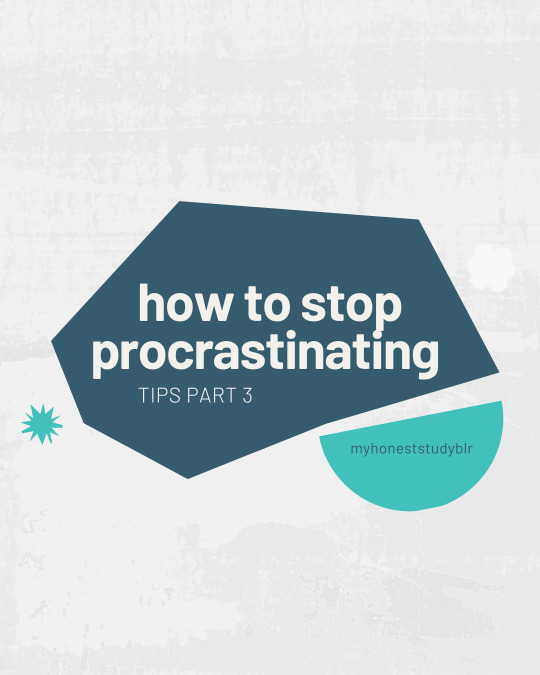Link
A lot of publicly accessible Google Drive links will no longer be accessible later this year unless their owners opt out of new security enhancements. These enhancements are being brought to Google Drive on September 23rd, 2021, the company announced in a blog post today.
Once this change goes live, Google says that users will need a “resource key” to access a publicly shared link. However, users won’t need an updated link with said resource key appended if they’ve already accessed that file before in the past. As a result of this change, we can imagine that lots of Google Drive links shared online on forums and other sites will no longer work as their owners neglect to update them, leaving them only accessible to the people that have already clicked the links before. This comes after Google also announced similar changes to YouTube’s unlisted videos earlier today.
According to the post made on the Google Workspace blog, this won’t affect all files. Users who have shared a file that is affected by this change will get an email from Google informing them of this change and how to opt out of needing those files from being updated. These emails will be sent out to users starting on July 26th. Google shared a copy of a sample email to show end-users what the message they’ll get will look like.
The company doesn’t recommend opting out all files and says that only the files that you want publicly accessible should be opted out. Users have until September 13th to decide if they want the update applied, so if you have no files that are publicly accessible, then you won’t need to do anything.
26K notes
·
View notes
Text
People, especially games, get eldritch madness wrong a lot and it’s really such a shame.
An ant doesn’t start babbling when they see a circuit board. They find it strange, to them it is a landscape of strange angles and humming monoliths. They may be scared, but that is not madness.
Madness comes when the ant, for a moment, can see as a human does.
It understands those markings are words, symbols with meaning, like a pheromone but infinitely more complex. It can travel unimaginable distances, to lands unlike anything it has seen before. It knows of mirth, embarrassment, love, concepts unimaginable before this moment, and then…
It’s an ant again.
Echoes of things it cannot comprehend swirl around its mind. It cannot make use of this knowledge, but it still remembers. How is it supposed to return to its life? The more the ant saw the harder it is for it to forget. It needs to see it again, understand again. It will do anything to show others, to show itself, nothing else in this tiny world matters.
This is madness.
#writing#writing: genres#genre: horror#eldritch madness#monsters#genre: fantasy#writing: characters#characters: conflict
173K notes
·
View notes
Photo

The Roman navy approaches the base of Mount Vesuvius With Pompeii threatened, Pliny the Elder launched a suicidal rescue mission, by Western Australian Museum.
#😳😳 pompeii + ships my beloveds#classics#classics: ancient art#pliny the elder#classics: history#rome#pompeii#western australian museum
77 notes
·
View notes
Text
I am urging you not to take every single piece of writing advice you read online to heart.
2K notes
·
View notes
Link
“In March 2018, Peter-Lucas Jones and the ten other staff at Te Hiku Media, a small non-profit radio station nestled just below New Zealand’s most northern tip, were in disbelief. In ten days, thanks to a competition it had started, Māori speakers across New Zealand had recorded over 300 hours of annotated audio in their mother tongue. It was enough data to build language tech for te reo Māori, the Māori language – including automatic speech recognition and speech-to-text.
The small staff of Māori language broadcasters and one engineer were about to become pioneers in Indigenous speech recognition technology. But building the tools was only half the battle. Te Hiku soon found itself fending off corporate entities trying to develop their own indigenous data sets and resisting detrimental western approaches to data sharing. Guarding their data became the priority because the only people truly interested in revitalising the Māori language were the Māori people, themselves.”
29K notes
·
View notes
Text
Crafting A Fantasy Culture, or the fallacies of using culture in the singular
The world is an interdependent place.
A lot of Western writers will look at the need to diversify their writing and try to cherry pick outside cultures to add. They then come to us with a laundry list of questions about what they’re allowed to change about those cultures because, well, they didn’t pull from a broad enough context.
The thing about researching individual cultures is: you’re never going to be researching just one culture. You’re going to be researching all the cultures they interacted with, as well.
Cultures are made by interacting with other cultures. So you can’t simply plop a singular culture into a fantasy world and expect it to work. There is too much outside influence on that culture for you to get a holistic picture by researching the culture in isolation.
Instead, you need to ask yourself, “what environments made them, and how much of their surrounding contexts do I need to add to my fantasy world to make this genuine respectful representation?”
And before you say that you can’t possibly do that, that is too much research, let me introduce you to the place you’re already doing it but don’t realize:
Stock Fantasy World 29
Aka, fantasy Europe.
It gets ragged on a lot, but let’s take a minute to look at the tropes that build this stock fantasy world.
Snow
4 seasons
Boars, pigs, wolves, dogs, pine trees, stone
Castles
Sheep
Knights
A king
Farming based economy
Religion plays a pretty big role in life
All fairly generic fantasy Europe tropes. But if you look more closely, you’ll notice that this is painting a picture of Fantasy Germany/the Netherlands, with perhaps a dash of France and/or England in there, all of it vaguely Americanized (specifically the New England area) because there’s usually potatoes and tomatoes. The geographic region is pretty tight, and it just so happens to mesh with the top three superpowers of upper North America, and arguably the English speaking world.
But let’s keep going.
They import stuff. Like fine cloth, especially silk, along with dyes & pigments
These things are expensive from being imported, so the nobility mostly have them
There’s usually a war-mongering Northern People invading places
If brown people exist they are usually to the East
There might be a roaming band of nomadic invaders who keep threatening things
There is, notably, almost no tropical weather, and that is always to the South if it’s mentioned
There might be an ocean in the South that leads to a strange forgien land of robed people to survive a desert (or did I just read too much Tamora Pierce?)
And, whoops, we have just accidentally recreated European history in its full context.
The Northern people are Norse, and their warring ways are indicative of the Viking Invasion. The imports hint at Asia, namely the Ottomans and India, and the silk road. The roaming invaders are for Mongolian Khanate. The ocean and tropical weather in the South hints at Spain, Greece, and the Mediterranean. And the continent of robed people indicates North Africa, and/or Southwest Asia.
Suddenly, stock fantasy world 29 has managed to broad-strokes paint multiple thousands of years of cultural exchange, trade, wars, invasions, and general history into a very small handful of cultural artifacts that make up throwaway lines.
Europe As Mythology And You
European history is what’s taught in Western classrooms. And a lot of European history is painted as Europe being a cultural hub, because other places in the world just aren’t talked about in detail—or with any sort of context. Greece and Rome were whitewashed; the Persian and Ottoman empires were demonized; North Africans became the enemy because of their invasion of Spain and the fact many of them were not-Christian; the Mongolian Khanate was a terrible, bloodthirsty culture whose only goal was destruction.
But because all of these parts did interact with Europe and were taught in history class, writers crafting a fantasy Europe will automatically pull from this history on a conscious or subconscious level because “it’s what makes sense.”
The thing is, despite people writing European fantasy subconsciously recreating European history, they don’t actually recreate historical reality. They recreate the flattened, politically-driven, European-supremacist propaganda that treats every culture outside of Europe as an extra in a movie that simply exists to support Europe “history” that gets taught in schools.
As a result of incomplete education, a lot of people walk away from history class and believe that cultures can be created in a vacuum. Because that’s the way Europe’s history was taught to them.
Which leads to: the problem with Fantasy World 29 isn’t “it’s Europe.” It’s the fact it’s an ahistorical figment of a deeply colonial imagination that is trying to justify its own existence. It’s homogeneous, it only mentions the broader cultural context as a footnote, it absolutely does not talk about any people of colour, and there’s next to no detailing of the variety of people who actually made up Europe.
So writers build their Fantasy World 29 but they neglect the diversity of religion and skin tone and culture because it’s unfamiliar to them, and it was never taught to them as a possibility for history.
While “globalization” is a buzzword people throw around a lot to describe the modern age, society has been global for a large portion of human history. There were Japanese people in Spain in the 1600s. Polynesians made it to North America decades if not centuries before Columbus did. There are hundreds more examples like this.
You can absolutely use fantasy to richen your understanding of Europe, instead of perpetuating the narratives that were passed down from victor’s history. People of colour have always existed in Europe, no matter what time period you’re looking at, and unlearning white supremacist ideas about Europe is its own kind of diversity revolution.
Travel is Old and People Did It Plenty
Multiculturalism is a tale as old as time. And while some populations were very assimilationist in their rhetoric, others were very much not. They would expand borders and respect the pre-existing populations, or they would open up networks to outsiders to become hubs of all the best the world had to offer. Even without conscious effort, any given place was building off of centuries of human migration because humans covered the globe by wandering around, and people have always been people.
Regardless, any time you have a group of people actively maintaining an area, they want to make travelling for themselves easier. And the thing about making travelling for yourself easier is: it made travel for outsiders just as possible. By the time you reach the 1200s, even, road, river, and ocean trade networks were thriving.
Sure, you might be gone for a year or three or five because the methods were slow, but you would travel. Pilgrimages, trade routes, and bureaucratic administrative routes made it possible for people to move around.
And also, soldiers and war did really good jobs of moving people around, and not all of them went back “home.” Hence why there have been African people in England since the Roman empire. When you have an empire, you are going to take soldiers from all over that empire; you aren’t going to necessarily pull from just the geographic region immediately surrounding the capital.
Yes, the population that could travel was smaller than it is now, because land needed to be worked. But Europe isn’t the be all end all in how much of its population needed to be in agriculture in order to function; the Mughals, for example, had 80% of their population farming, compared to over 90% for Europe in the same time period. That’s an extra 10% of people who were more socially free to move around, away from their land. Different cultures had different percentages of people able to travel.
This isn’t counting nomadic populations that relied on pastoralism and horticulture who didn’t actually settle down, something a lot of history tends to ignore because cities are easier to discuss. But nomadic populations existed en masse across Eurasia, and they took cultural traditions all over the continent.
Just because it wasn’t fast doesn’t mean it didn’t happen. And just because a lot of Europeans couldn’t travel because of the agricultural demands of the continent, doesn’t mean every other culture was as tied to settlements.
Multiculturalism and Diffusion
While each individual culture is unique, and you can find pockets of difference anywhere, cultures exist on a sliding scale of broad customs across the globe. Greece and Turkey will have more in common than China and England, because the trade routes were much closer and they shared central rulership for multiple hundreds of years.
This is why we keep saying it’s important to keep cultures with other cultures close to them. Because those are the natural clusters of how all of the cultures involved would be formed. The proper term for this is cultural diffusion, and it happened all the time. Yes, you could get lots of people who had their own unique customs to set themselves apart. But they had the same natural resources as the dominant group, which meant they couldn’t be completely and totally alien.
Even trade influence wouldn’t produce the same results in two places. When Rome imported silks from China, they rewove them to be a different type of fabric that was lighter and more suited to their climate. Then the Romans sold the rewoven silk back to China, who treated it differently because they’d woven it the first way for a reason. They didn’t talk to each other directly because of how the Silk Road was set up at the time, either, so all they had were the goods.
And people automatically, subconsciously realize this whenever they write Fantasy World 29. They put like cultures with like cultures in Europe. Because even if they weren’t really taught to see the rest of the world as anything more than a footnote, they still transfer those footnotes to their fantasy.
The problem is, people don’t realize the gradient of customs. In the modern day, Greece and Turkey are different countries, with histories that are taught in totally different frameworks (Greece as an appropriated white supremacist “ancient land” that all Western European societies are descendent from, Turkey as a land of brown people that were Muslim and therefore against the Good Christian Europe), so it’s really easy to ignore all of their shared history.
People often fought for the right to rule (or even exist) in a place, which deeply impacted the everyday people and government. Ancient Persia is a fantastic example of this, because it covered huge swaths of land and was a genuinely respectful country (it took over a deeply disrespectful country); had it not been for Cyrus the Great deciding that he would respect multiculturalism, the Second Temple wouldn’t have been rebuilt in Jerusalem.
You can’t homogenize an area that was never homogenous to begin with. Because there was a ton of fighting and sometimes centuries-old efforts to preserve culture in the face of all this fighting (that sometimes came with assimilation pressure). Dominant groups, invading groups, influencing groups, and marginalized groups have always existed in any given population. See: Travel is Old above. See: people have always been people and wandered around. Xenophobia is far, far older than racism ever will be, because xenophobia is simply “dislike of Other” and humans love crafting “us vs them” dynamics.
This lack of unity matters. It’s what allows you to look at a society (especially one with a centralized government) and see that it is made up of people that are different. It leads you to asking questions such as:
Who was persecuted by this group?
Did the disliked group of people exist within their borders, or were they driven away and are now enemy #1?
What was their mindset on diversity?
How did they handle others encroaching on what they saw as their territory?
People do different things across different households, let alone hundreds of miles away. You wouldn’t expect someone from a rich, white area of California to behave the same way as someone from a middle-class immigrant neighbourhood from NYC. I’m sure, if you looked at your own city, you would scoff at the concept of someone mistaking your city for one five hours away, because when you know them, they’re so different.
So why do you expect there to be only one type of person anywhere else?
Cultural and Geographic Context Matters
A region’s overreacting culture (either determined by groups of people who mostly roam the land, or a centralized government) and their marginalized cultures determine the infighting within a group, even if the borders remain the same.
Persecution and discrimination are just as contextual as culture. Even if the end result of assimilation and colonialism was the same, the expectations for assimilation would look different, and what they had been working with before would also look different. You can’t compare Jewish exile from various places in Europe with Rromani exiles in Europe, and you definitely can’t compare them with the Hmong in Southeast Asia. They came from different places and were shaped by different cultures.
A culture that came from a society that hated one particular aspect of them will not form—at all—if they’re placed in a dominant culture that doesn’t find their cultural norms all that persecution-worthy. And the way they were forced to assimilate to survive will play into whatever time period you’re dealing with, as well; see the divide of Jewish people into multiple categories, all shaped by the resources available in the cultures they stayed in the longest.
You can’t remove a culture’s context and expect to get the same result. Even in a culture that doesn’t wholesale have an assimilationist agenda, you can still get specific prejudices and scapegoats that happen when there’s a historical precedent in the region for disliking a certain group.
Once you start cherry picking what elements of a culture to take—because you’ve plunked the !Kung into Greece and need to modify their customs from the desert to a tropical destination —you’re going to end up with coding that is absolutely positively not going to land.
Coding is a complex combination of foods, clothing, behaviour/mannerisms, homes, beliefs, and sometimes skin tone and facial features. A properly coded culture shouldn’t really need any physical description of the people involved in order to register as that culture. So when you remove the source of food, clothing, and home-building materials… how can you code something accurately from that?
And yes, it’s intimidating to think of doing so much research and starting from 0. You have to code a much larger culture than you’d originally intended, and it absolutely increases the amount of work you have to do.
But, as I said, you are already doing this with Europe. You’re just so familiar with it, you don’t realize. You can get a rundown of how to code the overarching culture with my guide: Representing PoC in Fantasy When Their Country/Continent Doesn’t Exist
Takeaways
Writers need to be aware of diversity not just as a nebulous concept, but as something that simply exists and has always existed. And the diversity (or lack thereof) of any one region is a result of, specifically, the politics of that region.
Diversity didn’t just exist “over there”. It has always existed within a society. Any society. All societies. If you want to start adding diversity into your fantasy, you should start looking at the edges of Fantasy World 29 and realize that the brown people aren’t just stopping at the designated border and trading goods at exactly that spot, but have been travelling to the heart of the place for probably a few hundred years and quite a few of them probably liked the weather, or politics, better so they’ve settled.
Each society will produce a unique history of oppressing The Other, and you can’t just grab random group A and put it in societal context B and expect them to look the same. Just look at the difference between the Ainu people, the anti-Indigenous discrimination they face, and compare it to how the Maori are treated in New Zealand and the history of colonialism there. Both Indigenous peoples in colonial societies on islands, totally different contexts, totally different results.
If random group A is a group marked by oppression, then it absolutely needs to stay in its same societal context to be respectful. If random group A is, however, either not marked by being oppressed within its societal context and/or is a group that has historically made that move so you can see how their situation changed with that move, then it is a much safer group to use for your diversity.
Re-learn European history from a diverse lens to see how Europe interacted with Africa and Asia to stop making the not-Europe parts of Fantasy World 29 just be bit parts that add flavour text but instead vibrant parts of the community.
Stop picking singular cultures just because they fascinate you, and place them in their contexts so you can be respectful.
~ Mod Lesya
#writing#writing: worldbuilding#racism#xenophobia#oppression#diversity#genre: fantasy#writing: genres
6K notes
·
View notes
Text
How to teach yourself linguistics online for free
Wish you were enrolled in an intro linguistics class this semester? Starting a linguistics major and looking for extra help? Trying to figure out whether you should study linguistics and what comes after? Whether you’re just trying to grasp the basics of linguistics or you’re trying to construct a full online linguistics course, here’s a comprehensive list of free linguistics websites, podcasts, videos, blogs, and other resources from around the internet:
Linguistics Podcasts
Specific episodes:
The International Phonetic Alphabet and vowels
Constituency
Gricean Maxims and presuppositions
Kids These Days aren’t ruining language
Learning languages linguistically
Phonemes and palatalization
Prepositions, determiners, verbs
Morphemes and the wug test
Why do we gesture when we talk?
Syllables
Podcasts in general:
Lingthusiasm
Because Language
Vocal Fries
The History of English Podcast
Spectacular Vernacular
Linguistics Videos
Modular topics:
NativLang (cartoons)
The Ling Space
Tom Scott’s Language Files
Arika Okrent (whiteboard videos)
Mike Mena (classic sociolinguistics papers)
Structured video series like an online course:
Crash Course Linguistics (see also this list of companion links for each of the Crash Course videos)
Introduction to Linguistics (TrevTutor)
Another intro linguistics series (DS Bigham)
Phonology, Mathematical linguistics, Syntax (TrevTutor)
Another syntax series following the chapter structure of a free online syntax textbook (Caroline Heycock)
The Virtual Linguistics Campus at Marburg University
“Miracles of Human Language” (on Coursera from Leiden University)
Blog posts
General
How much do I need to know before taking intro linguistics? (Spoiler: not much)
28 tips for doing better in your intro linguistics course
How to find a topic for your linguistics essay or research paper
For typesetting linguistics symbols: What is LaTeX and why do linguists love it? (with sample LaTeX doc to download and modify).
An open access intro linguistics textbook, all freely available online
Further linguistics resources about specific areas, such as sociolinguistics, psycholinguistics, language acquisition (first/second), historical linguistics, neurolinguistics, prescriptivism.
Phonetics & Phonology
How to make your own paper model of the larynx
Teaching phonetics using lollipops
How to remember the IPA vowel chart
How to remember the IPA consonant chart
IPA transcription practice
A detailed explanation of sonorants, obstruents, and sonority
A very elaborate Venn diagram of English phonological features
The basics of how Optimality Theory works, with coffee analogy
Allophones of /t/, explained with internet gifs
Several good visualizations and explanations of the vocal tract
How to type IPA on your phone (Android and iOS)
Various ways to type IPA on a computer
Morphology & Syntax
Morphological typology cartoons
So you asked the internet how to draw syntax trees. Here’s why you’re confused.
Types of trees: a sentence is an S, a sentence is an IP, a sentence is a TP
A step-by-step guide to drawing a syntax tree, with gifs
Distributed Morphology
Garden path sentences: how they work, some examples
Structural ambiguity and understanding people in Ipswich
How to draw trees on a computer (TreeForm and phpSyntaxTree)
Pronoun typology and “the gay fanfiction problem”
The solution to violent example sentences: Pokemon
Semantics & Pragmatics
The difference between epistemic and deontic, necessity and possibility (with bonus modals as Hogwarts houses)
Why learn semantics? Comebacks to annoying people.
Presuppositions, implicature and entailment, and more presuppositions in Lizzie Bennet Diaries
Gricean maxims in Welcome to Night Vale
Scalar implicature and a duck gif
Giving a shit about Negative Polarity Items, NPIs explained using Mean Girls references, and a follow-up on Free Choice Items
The lambda calculus for absolute dummies
The Lambda Calculator (software for practising in Heim & Kratzer style)
Teaching linguistics
Linguistics resources for high school teachers
Teaching linguistics to 9-14 year olds
On writing an IB extended essay in linguistics (& follow-up)
IPA Bingo
IPA Jeopardy and IPA Hangman
Practising syntax trees using cards and string/straws
Find a linguistics olympiad near you!
Editing linguistics Wikipedia articles instead of writing a final paper that no one but the prof will read (see also wikiedu.org)
Academic/career advice
Should you go to grad school in linguistics? Maybe
Figuring out if you actually want to go to linguistics grad school
How to decide which linguistics grad school to go to
How to look for linguistics undergrad programs
How to interact with someone who’s just given a talk
An extensive list of undergrad and/or student-friendly conferences - apply to one near you!
Advice for linguistics profs on increasing enrollment and supporting non-academic careers
Linguistics jobs - a series about careers outside academia
Languages
Linguistic approaches to language learning resource roundup
Will linguistics help with language learning? / Will learning a second language help with linguistics?
The problem with “economically useful” as a reason for language learning
Further link roundups
This list not enough? Try these further linkposts:
A very long list of linguistics movies, documentaries, and TV show episodes
A list of books (fiction and nonfiction) about linguistics
A comprehensive list of language and linguistics podcasts, from Superlinguo
A very long list of linguistics YouTube channels and other free online videos about linguistics
20 linguistics blogs I recommend following
How to explain linguistics to your friends and family this holiday season
17K notes
·
View notes
Photo

Free Undated Daily Digital Planner
Here is a small digital planner for tracking your daily tasks in a half-hour format. It allows you to time manage, set priorities and general to dos. I’ve included a variety of stickers and alternative covers in case!! Also has Monday and Sunday start options.
Download free here!
Thank you for checking this out! If you have any questions and issues, please let me know.
Other downloads | Printables | Instagram | Youtube | Pinterest | Twitter | Etsy Shop | Discord
592 notes
·
View notes
Text
Little fact about French because I just learned that
The accent circonflexe (^) exists in French words to replace the “s” that no longer exists but used to be there in older French.
For example: fenêtre used to be fenestre
It is still possible to see the “s” at times in family words like “défenestrer”.
39K notes
·
View notes
Photo

#classics#translation#classics: literature#classics: language#classical greek#classical greek: vocab#homer#odyssey#odysseus#emily wilson#languages#greece
132K notes
·
View notes
Note
Hi, not sure if you've done one, but could you make a vocab list about school and higher education?
I actually did but I'll copy/paste and probably make some additions!
-
(From Las Materias Escolares)
Cosas
la materia = a school subject
el material = material, thingslos materiales escolares = school supplies
la asignatura = subject, course
el libro = book
la página = page
la carpeta = folder
el cuaderno = notebook
la tarea, los deberes = homework / task[lit. la tarea is a "task" but gets used for "homework" a lot, and los deberes is "duties" but also gets used for "chores" and "homework"]
la pizarra = blackboard
la tiza = chalk
el lápiz = pencil
la pluma = pen [lit. “feather, quill”]
el bolígrafo, el boli = pen [ballpoint]
el papel = paper
el ensayo = essay
el borrador = draft
la tesis = thesis
la lectura = reading, a reading assignment
la lección = lesson, lecture
la conferencia = lecture
el examen, los exámenes = test(s), exam(s)
la prueba = test, quiz
el tema = subject / theme
la beca = scholarship, grantla beca (de investigación) = research grant / research fellowship
el becario, la becaria = someone who holds a scholarship / trainee, assistant [depends on context; in some places becario/a means "intern" but that's not the case for most countries, I believe. A becario/a is someone who earns a beca which is usually understood as "money or a position set aside for a student/worker that they have to earn"]
la pregunta = question
la respuesta = answer
la fecha de límite = due date / deadlinela fecha de entrega = due date / deadline
el límite = limit
la entrega = hand-in / delivery
la facultad = department (in colleges/universities), a schoolla facultad de medicina = medical schoolla facultad de Derecho = law school
el aula, las aulas = classroom, classrooms [feminine noun with masculine article like agua, alma, ave]
el título, el grado, la diploma = degree, diploma
el jardín de infancia, el jardín de niños = kindergarten
el kindergarten, el kínder = kindergarten [Latin America]
la escuela = school
la (escuela) primaria = elementary school
la secundaria = middle school
el colegio = high school
la universidad, la uni = university, college
la escuela de posgrado, la escuela posgraduada, la escuela de postgrado = graduate school
la escuela/universidad técnica = vocational school
académico/a = academic, related to school/university
escolar = scholarly, scholastic / school-related
estudantil = student-related
Personas
el maestro, la maestra = teacher
el profesor, la profesora = professorel / la profe = “teach” [informal slang for profesor(a)]
el doctor, la doctora = doctor
el tutor, la tutora = tutor
el estudiante, la estudiante = student
el alumno, la alumna = student, pupil
el condiscípulo, la condiscípula = classmate / schoolmate [formal]
el compañero de clase, la compañera de clase = classmate [more common]
el rector, la rectora = principal, dean / headmaster, headmistressel director, la directora = principal, dean / director / headmaster, headmistress
el decano, la decana = dean (of a university) / chairperson, “chair”
el enfermero, la enfermera = nurse
el médico, la médica = doctor [specifically medical doctor; synonymous with doctor(a) in medical situations]médico/a residente = resident, medical resident
el consejero, la consejera = adviser, counselor
el consejero académico, la consejera académica = guidance counselor [lit. “academic counselor/adviser”]
el socio, la socia = partner
el / la colega = colleague
el / la conserje (o conserja) = janitor, custodian / concierge (hotel)
Las materias escolares
el ámbito de estudio / el campo de estudio = field of study
el ámbito de trabajo / el campo de trabajo =
el ámbito de… = the field of…
las matemáticas, las mates = mathematics, maths [Spain]la matemática, la mate = mathematics, math [Latin America]
el álgebra = algebra [feminine noun with masculine article like agua, alma, ave]
la geometría = geometry
la trigonometría = trigonometry
el cálculo = calculus
las finanzas, la administración = finance
la contabilidad, la administración = accounting
la gestión = management, administration
la economía = economics
la estadística = statistics [as a field of study]
la historia = history
la geografía = geography
la antropología = anthropology
la ciencia, las ciencias = science, sciences
la medicina = medicine
la medicina deportiva = sports medicine
la odontología = dentistry
la educación física = physical education
la veterinaria = veterinary medicine
la zoología = zoology / animal science
la enfermería = nursing / medical study
la biología = biology / life science
la biología marina = marine biology
la ecología = ecology
la agricultura = agriculture
la arquitectura = architecture
la ingeniería = engineering
la química = chemistry
la geología = geology / earth science
la meteorología = meteorology / weather science
la astronomía = astronomy
la psicología, la sicología = psychology
la psiquiatría, la siquiatría = psychiatry
la sociología = sociology
la filosofía = philosophy
la política / la ciencia política = politics / political science
la literatura = literatura
el arte = art
la historia del arte = art history
las bellas artes = fine arts
el arte culinario = culinary arts
el arte gráfico = graphic arts
el arte dramático = dramatic arts
el drama, el teatro = drama, theater
la historia del teatro = theater history
los artes liberales / las humanidades = liberal arts / humanities
el periodismo = journalism
la ciencia empresarial = business science
el negocio = business
el Derecho = Law
la abogacía = law / study to become a lawyer
la lengua, el idioma = language
las lenguas extranjeras, los idiomas extranjeros = foreign languages
la lingüística = linguistics
la traducción = translation
la interpretación = interpreting
la informática = computer science / information technology (IT)
la ciencia computacional = computer science
la física = physics
la educación, la enseñanza = teaching
Verbos
estudiar = to study
estudiar en el extranjero = to study abroad
aprender = to learn
enseñar = to teach
entregar = to hand in, to turn in
escribir = to write
leer = to read
escuchar = to hear / to listen
oír = to hear / to listen
pensar = to think
acordarse = to remember
recordar = to recall, to remember
practicar = to practice
empezar a hacer algo = to start to do something
comenzar a hacer algo = to begin to do something
ayudar = to help
investigar = to investigate / to research
licenciarse = to graduate, to get a degree
graduarse = to graduate (from school)
matricularse = to enroll, to register, to matriculate
vencer = to winvencer = to expire, for time to run out[vencer is used widely with library due dates, when contracts expire, or when bills need to be paid; the noun is el vencimiento here; but vencer is more commonly used as "to win"]
preguntar = to question, to wonder
hacer una pregunta = to ask a question
tener una pregunta = to have a question
contestar = to answer
ensayar = to try out, to test / to rehearse (theater)
poner a prueba = to put to the test
empeorar = to get worse, to worsen
mejorar = to get better, improve
desarrollar = to develop, to build
desarrollarse = to grow, to develop (oneself)
prestar (la) atención = to pay attention
equivocarse = to be wrong
tener (la) razón = to be right
tener sentido = to make sense
*Note: There are some regionalisms in here, and some have so many regionalisms I couldn’t include them on the list.
For instance, “to take a test” has so many regionalisms it’s difficult to list them all. In Mexico you’re probably going to hear presentar un examen. Some places will say hacer un examen, some even put it as el maestro / la maestra pone un examen a los estudiantes.
The default way of saying “to take a test” is dar un examen which is literally “to give an exam”, because you hand a test in to your teacher. Along the same lines, the default way a teacher “gives a test” is tomar un examen because they “take” the tests that the students turn in. For that reason, dar un examen is often translated as “to sit for an exam” to help the meaning come across more easily.
183 notes
·
View notes
Photo






my masterpost | my studygram | ask me anything | how to stop procrastinating series
[click images for high quality]
[transcript under the cut]
Other advice posts that may be of interest:
All About Procrastination
How To Study When You Really Don’t Want To
Common Study Mistakes
7 Strategies to Improve Concentration
Keep reading
1K notes
·
View notes
Note
You've probably got a lot of questions rn but I'm gonna try my luck: how to introduce secondary characters? In my specific case: the friend group of the main character
Instead of going on a long tirade for this question, I decided to list a few tips that I’ve found helpful over the years and some things that are key when introducing secondary characters. I’ve also listed some helpful articles I’ve found from other blogs that elaborate more on this concept for your perusal.
Here are my tips:
Instead of introducing them all at once, phase them in using scenes that have a lot of revealing action and/or dialogue. This prevents info-dumping and allows you to focus on the more distinguishing characteristics of minor players so that the reader establishes them in their index for your story.
Only spend time truly integrating characters into the scenes if they impact the main character and move the story along. If it’s an old man they pass by once that is more of a metaphor than anything else, don’t spend a paragraph describing them. This will mislead the reader and mess up the flow of the scene.
Don’t forget to introduce the implications that come with supporting characters as well. If your main character’s mother-in-law lives with them, you’ll need to begin to describe how this impacts the character’s day-to-day life on top of just describing the supporting character’s appearance and general personality traits. Supporting characters make a main character more three-dimensional, but only if you can convince the reader that they’re people too, and not just accessories.
Introduce minor characters in a manner that corresponds with their importance to the story. By this, I mean don’t have a really minor character enter the story in a way that brings a lot of questions into the reader’s mind and then never mention them again, or worse, lead them to believe answers will come in future scenes with the character and then never deliver. If a character will only be in 2-3 scenes, give the reader as much information or room for future knowledge as needed. Don’t create intrigue and leave the audience hanging.
Other articles that I found interesting/helpful on this topic:
How to Introduce Secondary Characters
How to Write Effective Supporting Characters
How to Introduce Supporting Characters: Examples From Good Authors
I hope this was helpful. Happy writing!
--
VISIT THE WORDSNSTUFF WEBSITE AT WORDSNSTUFFBLOG.COM
If you enjoy my blog and wish for it to continue being updated frequently and for me to continue putting my energy toward answering your questions, please consider Buying Me A Coffee or supporting me on Patreon.
Wordsnstuff also has a newsletter, which you can subscribe to by filling out the pop up on wordsnstuff.tumblr.com.
I’d also really appreciate it if you would check out my separate blog dedicated to my current work in progress. I also run writing sprints over on snapchat.
1K notes
·
View notes
Photo

Terracotta bell-krater (mixing bowl), Painter of New York GR 1000, ca. 350–325 B.C., Metropolitan Museum of Art: Greek and Roman Art
Purchase by subscription, 1896
Size: H. 15 7/8 in. (40.3 cm)
Medium: Terracotta
https://www.metmuseum.org/art/collection/search/246554
148 notes
·
View notes
Text






more study and organization inspo on my instagram account: thomreads
3K notes
·
View notes
Text
if handed a piece of paper what sort of doodle is your instinctive go-to
34K notes
·
View notes
Text
XKit Rewritten
The enhancement suite for Tumblr's new web interface.
Features
Block all instances of any specific post
Get an unread count on your tracked tags
Easily see when a post was originally made
Adjust the volume on audio & video posts
And more! Check out the full features list on the wiki
Screenshots



Installation
Get this extension for Firefox
View on the Chrome Web Store
#YES i've added it for my tag groups cus lord almighty-#it's so much easier to use than i thought it would be too#studying#studying: blogging#xkit
56K notes
·
View notes